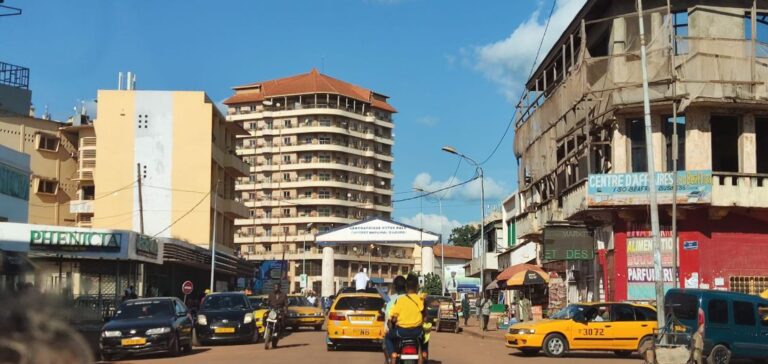The capital of the Central African Republic, Bangui, is in darkness following a major power outage. The failure occurred at the Gobongo district substation B, leaving the city without electricity for several days. This power cut is directly affecting the daily lives of residents, who are left without electricity during the day, making it difficult for businesses, government offices, and schools to operate normally.
Disruption of daily activities
The power outages are having immediate consequences on the city’s economic and social sectors. Many businesses are unable to operate efficiently, while perishable goods risk deteriorating due to the lack of refrigeration. Government offices and schools are also affected, as they cannot function properly without electricity. Furthermore, at night, the capital is plunged into darkness, compromising public safety and forcing some residents to sleep outside to escape the heat, due to the lack of air conditioning.
Water supply crisis
In addition to electricity, the outage has exacerbated another major crisis: the water shortage. Several neighborhoods in Bangui are experiencing interruptions in their potable water supply, due to the shutdown of electric-powered pumping stations. Residents must wake up early to search for water, often in vain, as wells dry up during the dry season. The residents have expressed their frustration on social media, denouncing the lack of information and visible actions from local authorities in response to the situation.
Official reactions and crisis management
The Minister of Energy, Arthur Bertrand Piri, visited the faulty substation and urged the population to remain patient. He assured that technical teams from ENERCA (Energy of Central Africa) were actively working to resolve the outage, although no precise estimate regarding the restoration of electricity has been provided. The government has emphasized the importance of maintaining confidence in the technical teams, while facing growing pressure from citizens.
Energy context and long-term challenges
This power outage highlights the structural challenges of the energy sector in the Central African Republic. With an estimated production capacity of 100 megawatts and a national demand of 250 megawatts, the country is far from being able to meet its energy needs. Despite investments in projects such as a solar power plant and the reinforcement of a thermal plant, power cuts remain frequent, and network management remains insufficient to ensure continuous supply. These difficulties are largely explained by the lack of a stable energy policy and the weakness of infrastructure, inherited from decades of civil war.
Political and economic issues
The inefficiency of the energy system is not only a technical issue, but also one that is embedded in a complex political context. In December, President Faustin Archange Touadéra highlighted in his national address the absence of a rigorous energy policy for nearly forty years, which has led to weak energy production and distribution. These issues persist despite recent investments. This situation, coupled with water and essential service shortages, could impact social and political stability as the presidential elections scheduled for December approach.





















